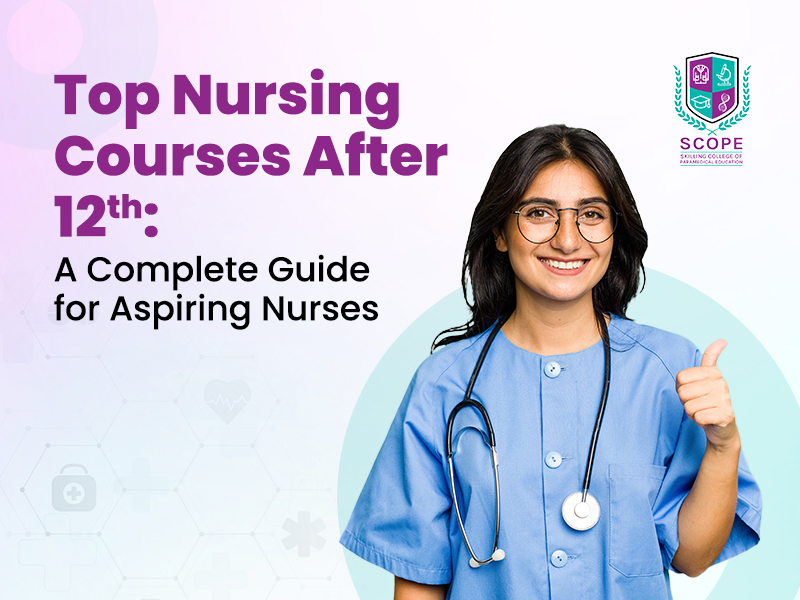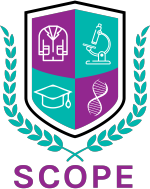
Nursing is a noble profession that plays a crucial role in healthcare. As a nurse, you have the opportunity to make a significant impact on patients’ lives and contribute to society’s well-being. Choosing the right nursing course after 12th grade is essential for building a strong foundation in this field. This comprehensive guide aims to provide aspiring nurses with detailed information about the top nursing courses available, eligibility criteria, best institutions, and career opportunities.
Why Choose Nursing as a Career?
Nursing, a profession that offers job stability and high demand for skilled professionals, is more than just a career. It’s a path that leads to personal fulfillment and satisfaction. With an aging population and advancements in healthcare, the need for qualified nurses is continually growing. Nurses can specialize in various areas, enhancing their skills and career prospects. The profession also allows you to make a meaningful contribution to patient care and healthcare delivery, a source of immense personal satisfaction.
Nursing Courses After 12th
Certificate Course in General Nursing & Midwifery Assistant
Course Duration and Structure: The Certificate Course in General Nursing & Midwifery Assistant is a comprehensive one-year program designed to provide students with the essential skills and knowledge required to excel in nursing and midwifery.
Eligibility Criteria: Applicants must have completed their 10th or 12th grade in any stream to be eligible for this course. This inclusive eligibility criterion ensures that students from diverse educational backgrounds can pursue a career in nursing.
Salary Expectations: A General Nursing & Midwifery Assistant in India typically ranges from INR 2,00,000 to INR 4,50,000 annually. This reflects the essential role and demand for skilled professionals in this sector.
Significance of the Course: This certification equips students with the foundational skills necessary for patient care, including assisting in daily activities, serving meals, and performing basic medical procedures. It is a crucial step towards becoming a competent nursing professional capable of supporting patients and healthcare providers.
Career Prospects: Graduates of this course can find employment in various healthcare settings, including government and private hospitals, nursing homes, maternity centers, and home healthcare services. They can also advance to roles such as ward managers and supervisors or specialize further in areas like maternal and child healthcare.
Scope of General Nursing & Midwifery Assistant: The scope for General Nursing & Midwifery Assistants is broad, offering opportunities to work in multiple healthcare environments and roles. With the growing healthcare industry, there is a continuous demand for skilled nursing assistants, ensuring a stable and rewarding career path.
Certificate Course in Operation Theatre Technician
Course Duration and Structure: The Certificate Course in Operation Theatre Technician is a one-year program that provides in-depth training in surgical procedures, sterilization techniques, and patient care during surgery. It combines classroom instruction with hands-on training in operation theatre settings.
Eligibility Criteria: Applicants must have completed their 10th or 12th grade to enroll in this course. This makes the course accessible to a wide range of students interested in healthcare.
Salary Expectations: The average salary for an Operation Theatre Technician in India ranges from INR 1,56,000 to INR 1,80,000 per year. This reflects these technicians’ essential role in surgical teams and healthcare facilities.
Significance of the Course: This course trains students in the critical aspects of operating room management, including preparing surgical instruments, maintaining sterile conditions, and assisting during surgical procedures.
Career Prospects: Graduates can work as operation theatre technicians in hospitals, surgical centers, and emergency care units. They are vital members of surgical teams and ensure that operations run smoothly and safely.
Scope of the Certificate Course in Operation Theatre Technician: The scope for operation theatre technicians is significant, with a growing demand for skilled professionals in surgical departments. Graduates can further specialize in specific surgical fields or advance into supervisory roles.
Career Opportunities After Completing Nursing Courses
Nursing Assistant
Providing basic patient care in hospitals, nursing homes, and home healthcare services. Duties include helping with daily activities and taking vital signs. With experience, they can advance to licensed practical nurses (LPNs) or registered nurses (RNs).
Midwifery Assistant
Assisting midwives during childbirth and providing prenatal and postnatal care in maternity centers and community health settings. Opportunities for further specialization and certification as certified midwives.
Operation Theatre Technician
Preparing and maintaining operating rooms, assisting during surgeries, and ensuring sterilization of surgical instruments. Employment opportunities in hospitals, surgical centers, and emergency care units. Technicians can advance to supervisory roles with additional training.
Community Health Worker
Educating and supporting communities on health and wellness topics, assisting in health screenings, and connecting individuals with healthcare services. Work settings include community health centers, public health departments, and non-profits. Career advancement through roles in public health administration and education.
Specialized Nursing Roles
Focusing on areas like pediatric, psychiatric, critical care, neonatal, and oncology nursing. Employed in specialty hospitals and clinics. Opportunities for certifications and advanced degrees to enhance career prospects.
Nurse Educator
Teaching and training aspiring nurses in academic and clinical settings, developing curricula, and supervising clinical practice. Positions available in nursing schools, colleges, and hospitals with training programs. Potential to advance to administrative roles with advanced degrees.
Home Healthcare Nurse
Providing in-home care for patients with chronic illnesses or disabilities. Managing medical needs and offering support in a familiar environment. Career opportunities in private and government healthcare services.
Real-Life Applications of Nursing
Nursing plays a vital role in healthcare, with real-life applications that extend far beyond the basic responsibilities of patient care. Here are some key areas where nursing has a significant impact:
Patient Care
Nurses provide comprehensive care to patients in hospitals, ensuring they receive the necessary medical attention, administering medications, and monitoring vital signs. They offer emotional support and comfort to patients and their families during challenging times.
Community Health
Nurses engage in community health initiatives, conducting health education programs, vaccination drives, and preventive screenings. They work in schools, community centers, and public health departments to promote wellness and prevent disease.
Emergency Response
In emergencies, such as natural disasters or accidents, nurses are often on the front lines, providing critical care and stabilizing patients. Their quick response and expertise can save lives in high-pressure environments.
Specialized Care
Nurses with specialized training, such as those in pediatric, oncology, or critical care, provide targeted medical care and support to specific patient groups. Their expertise ensures that patients with complex medical needs receive appropriate treatment.
Chronic Disease Management
Nurses play a crucial role in managing chronic diseases like diabetes, hypertension, and heart disease. They educate patients on lifestyle changes, monitor their health, and coordinate care to improve long-term outcomes.
Home Healthcare
Nurses provide in-home medical care for patients with chronic illnesses, disabilities, or those recovering from surgery. This allows patients to receive quality care in the comfort of their homes, reducing hospital readmissions.
Mental Health Support
Psychiatric nurses support patients with mental health issues, providing therapy, medication management, and crisis intervention. They work in hospitals, mental health clinics, and community settings to improve mental health care.
Public Health and Epidemiology
Nurses contribute to public health research and epidemiology, helping to track disease outbreaks, analyze health data, and develop public health policies. Their work is crucial in managing public health crises and improving population health.
Curriculum Insights
Nursing courses offer a comprehensive blend of theoretical knowledge and practical skills essential for a successful healthcare career. Here are some key components typically included in the curriculum:
Basic Sciences: Courses cover human anatomy, physiology, microbiology, biochemistry, and pharmacology to provide a foundational understanding of the human body and its functions.
Fundamentals of Nursing: Students learn the core principles of nursing care, including patient hygiene, mobility, and basic life support.
Specialized Nursing Areas: Topics include pediatric nursing, psychiatric nursing, community health nursing, and maternal and child health nursing, providing focused training in various specialties.
Clinical Practice: Hands-on training in hospitals and clinical settings is crucial, allowing students to apply their knowledge and develop practical skills in real-world scenarios.
Nursing Ethics and Management: Courses on professional ethics, healthcare policies, and nursing management prepare students for leadership roles and ethical decision-making in their practice.
Health Assessment and Diagnosis: The curriculum’s core component includes training in assessing patient health, conducting physical examinations, and diagnosing medical conditions.
Making the Right Choice
When choosing a nursing course after the 12th grade, it is essential to consider several factors to ensure you make an informed decision that aligns with your career goals. Here are some key aspects to consider:
Accreditation and Reputation of the Institution
Ensure that the nursing institution is accredited and has a strong reputation in the healthcare field. Accredited programs meet high educational standards, which are crucial for professional recognition and career advancement. A reputable institution often has well-qualified faculty, modern facilities, and a comprehensive curriculum.
Curriculum and Hands-On Training Opportunities
Look for nursing courses that offer extensive practical training. Hands-on experience is essential for mastering nursing skills and building confidence in patient care. Evaluate the curriculum to ensure it covers all necessary subjects comprehensively, including anatomy, physiology, nursing fundamentals, and specialized nursing areas.
Career Support and Placement Opportunities
Institutions with robust career support and placement programs can significantly ease the transition from student to professional. They often connect with hospitals, clinics, and other healthcare facilities, providing students with job placements and career guidance. A strong support system can help you secure employment and advance your nursing career.
Choosing the right nursing course is foundational for a successful and rewarding career in healthcare. It ensures that you are well-prepared to significantly impact patient care and public health.
Why Choose SCOPE College?
Skilling College of Paramedical Education (SCOPE) offers a comprehensive range of nursing courses after the 12th, including:
Why Enroll at SCOPE College?
Accreditation and Excellence: SCOPE is accredited and well-respected in the healthcare education field, ensuring high-quality education and professional recognition.
Comprehensive Curriculum: The college offers a robust curriculum with extensive hands-on training, preparing students for real-world challenges. The programs include both theoretical knowledge and practical skills necessary for a successful nursing career.
Career Support: SCOPE provides strong career support and placement opportunities, with connections to top healthcare facilities. This support includes job placements and career guidance, helping students transition smoothly from education to employment.
Conclusion
Choosing the right nursing course after the 12th grade is crucial for a fulfilling healthcare career. Aspiring nurses can make informed decisions by considering accreditation, curriculum, hands-on training, and career support.
Frequently Asked Questions
Do you need NEET for nursing?
A: No, NEET is not required for courses like General Nursing and Midwifery (GNM) or the Certificate Course in Operation Theatre Technician. However, specific institutions may have their own entrance exams or criteria.
How can I join nursing after the 12th?
A: To join nursing after the 12th, you can enroll in courses like GNM or the Certificate Course in Operation Theatre Technician. Ensure you meet the eligibility criteria, which typically include completing 12th grade and applying to accredited institutions.
Which nursing is best after the 12th?
A: Among the options after the 12th, GNM is a popular choice due to its comprehensive training in general nursing and midwifery. The Certificate Course in Operation Theatre Technician is also highly regarded for those interested in surgical support roles.
Is nursing a good career salary?
A: Yes, nursing is a well-paying career. For example, Operation Theatre Technicians can earn between INR 1,56,000 to INR 1,80,000 annually, while GNM graduates can expect similar or slightly higher earnings as they gain experience and expertise.
